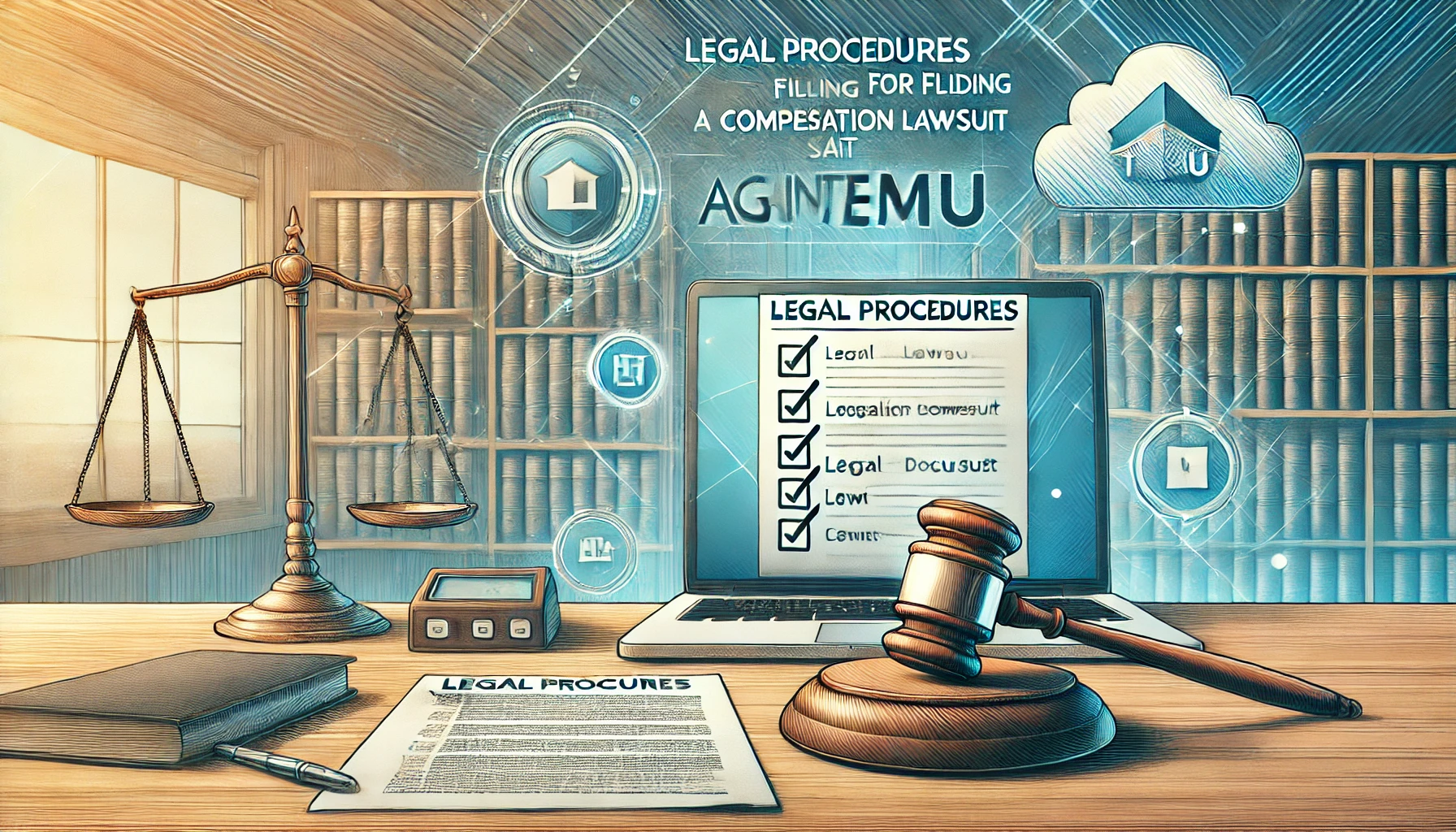The Temu compensation lawsuit has gained attention as consumers seek legal redress for various compensation claims. As Temu continues to grow as a prominent e-commerce platform, issues surrounding customer satisfaction and compensation have surfaced, leading to legal action. Understanding the nuances of this lawsuit is crucial for those following the case.
The Temu compensation lawsuit primarily focuses on claims related to compensation disputes. These disputes range from unmet product expectations to issues with refunds and damages. Consumers argue that the platform’s policies may not provide adequate protection in some instances, sparking a legal debate.
As the Temu compensation lawsuit progresses, it is likely to set important legal precedents for how compensation matters are handled in the rapidly expanding e-commerce sector. Both consumers and companies are watching this case closely for its potential impact on future online marketplace operations.
How Compensation Lawsuits Impact Online Marketplaces
The rise of compensation lawsuits, like the Temu compensation lawsuit, poses significant challenges for online marketplaces. These lawsuits can damage a company’s reputation, especially in a competitive market where customer trust is crucial. Platforms like Temu are expected to maintain customer satisfaction, and failure to do so often leads to publicized legal battles that hurt their brand image.
Moreover, the financial impact of these lawsuits is substantial. Legal fees, settlements, and refunds can take a toll on companies. For online marketplaces, even a single lawsuit can spark wider scrutiny, leading to more claims from other consumers. This creates a ripple effect that may result in increased costs and tightened regulations.
In the broader context, compensation lawsuits often lead to regulatory changes. When patterns of consumer complaints emerge, lawmakers may step in to enforce stricter rules on marketplaces. This creates a cycle where online platforms are continuously adjusting their policies to stay compliant with evolving legal standards.
Common Legal Challenges in Compensation Lawsuits
Compensation lawsuits, including the Temu compensation lawsuit, face several common legal challenges. One of the primary hurdles is proving causation — consumers must demonstrate that the damages they experienced directly resulted from the company’s actions. Without sufficient proof, many lawsuits may not proceed.
Another challenge is the complexity of e-commerce transactions. The international nature of platforms like Temu introduces jurisdictional issues. For instance, the platform may be headquartered in one country while operating in another, making it difficult to determine which laws apply. This often complicates the litigation process and may result in prolonged legal battles.
A table showcasing the common legal challenges and their impact on the lawsuit could look like this:
| Legal Challenge | Impact on Case |
| Proving Causation | Essential for establishing damages |
| Jurisdictional Issues | Can delay proceedings or complicate defense |
| Complexity of E-commerce | May obscure the direct cause of damages |
Lastly, consumer lawsuits often involve multiple parties. In some cases, Temu might not be the sole party responsible for the issue, such as when third-party sellers are involved. Determining liability in such cases can be an intricate process.
The Role of Consumer Rights in the Temu Compensation Lawsuit
Consumer rights play a crucial role in the Temu compensation lawsuit. These rights protect individuals from unfair business practices, ensuring that they receive accurate information, safe products, and proper compensation when things go wrong. Consumer protection laws provide the framework for filing lawsuits, making it easier for individuals to pursue legal action.

Consumers are empowered by these rights to demand accountability from companies like Temu. For example, if a product arrives damaged or fails to meet advertised claims, consumers can invoke their rights to a refund or compensation. In cases where these rights are violated, a legal framework supports the consumer in seeking justice through a lawsuit.
Furthermore, consumer rights often encourage transparency from businesses. To avoid legal repercussions, platforms like Temu may revise their policies to ensure clearer communication with their customers. Over time, this can create a more trustworthy online shopping environment, benefiting both businesses and consumers.
These rights not only offer protection but also drive companies to improve their services, highlighting the significance of consumer empowerment in the marketplace.
Legal Grounds for Filing a Temu Compensation Lawsuit
Filing a Temu compensation lawsuit involves understanding the legal basis on which consumers can claim compensation. These lawsuits often arise when customers feel that the company has failed to meet its contractual obligations, such as delivering products that match their advertised descriptions or providing agreed-upon refunds.
Common legal grounds include:
- Breach of contract: This occurs when Temu does not deliver on the promises outlined in its terms of service.
- Misrepresentation: If Temu provides false or misleading information about a product, customers can file for compensation.
- Consumer protection violations: Failure to follow consumer protection laws can also lead to lawsuits.
In many instances, consumers rely on documented evidence such as purchase records and product descriptions to substantiate their claims. The success of these lawsuits often depends on how well the legal team can demonstrate that Temu failed to meet its obligations under the law.
Key Legal Defenses in Compensation Disputes
In compensation disputes, companies like Temu rely on specific legal defenses to protect their interests. One of the most common defenses is compliance with contractual terms. This defense argues that the company has fulfilled its obligations according to the terms agreed upon by the consumer at the time of purchase, which can weaken the plaintiff’s claim.
Another defense involves limitation of liability, where the company may highlight clauses in the terms and conditions that limit its responsibility for specific issues, such as damages or non-refundable products. Additionally, companies may invoke the assumption of risk, suggesting that the consumer was aware of potential risks when purchasing, particularly with products sold by third-party sellers.
Key legal defenses include:
- Breach of contract defense: Asserting that the terms of service were adhered to.
- Limited liability clauses: Protecting the company from responsibility for certain damages.
- Assumption of risk: Claiming the consumer was aware of the risks involved.
These defenses are critical for companies to navigate the complexities of compensation lawsuits while protecting their interests.
What to Expect During a Temu Compensation Lawsuit
When pursuing a Temu compensation lawsuit, consumers should be prepared for a series of legal steps that will unfold over time. Initially, the lawsuit begins with filing a complaint, where the consumer outlines the reasons for their claim and the compensation they seek. Temu is then given the opportunity to respond, either by defending their actions or attempting to settle the matter out of court.
Following this, both parties engage in discovery, where evidence is exchanged. This includes product records, communications between the consumer and Temu, and any relevant documents or data. Discovery helps clarify the facts and determine the strength of each side’s arguments.
After discovery, pre-trial motions may be filed. Temu might try to dismiss the case entirely, especially if it believes the consumer lacks sufficient evidence. If the case goes to trial, both sides present their arguments before a judge or jury, who will decide the outcome. It’s essential for consumers to have realistic expectations about the time and complexity involved in this process, as lawsuits can take months or even years to conclude.
Strategies for Success in E-Commerce Compensation Cases
Success in e-commerce compensation cases like the Temu compensation lawsuit depends on several key strategies. One effective approach is gathering strong evidence. Consumers should ensure they have all relevant records, such as order confirmations, product descriptions, and any communication with Temu’s customer service. This documentation can play a pivotal role in proving the legitimacy of their claim.

Additionally, engaging experienced legal counsel is vital. Lawyers familiar with e-commerce cases understand the intricacies of online transactions and consumer protection laws. Their expertise can make a significant difference in how well the case is presented.
Another important strategy is understanding the platform’s terms and conditions. By carefully reviewing these, consumers can identify whether any terms were violated by Temu, strengthening their case. A well-prepared plaintiff who understands both their rights and the company’s responsibilities has a better chance of securing a favorable outcome.
How Courts Handle Compensation Lawsuits in Digital Platforms
Courts approach compensation lawsuits involving digital platforms like Temu with careful consideration of both contract law and consumer protection regulations. A primary factor in these cases is whether the digital platform’s terms and conditions were fair and clearly presented to consumers. Courts often assess whether these terms adequately inform customers of their rights and obligations during transactions.
Another aspect courts consider is the platform’s responsibility in fraud prevention. If a customer claims that a product was misrepresented, the court will look at the evidence provided, such as product listings and reviews, to determine if Temu took appropriate measures to prevent fraud on its platform.
A chart might help explain how courts weigh different factors in these cases:
| Court Consideration | Weight in Decision (High/Medium/Low) |
| Contract Clarity | High |
| Consumer Protection Laws | High |
| Fraud Prevention Measures | Medium |
| Platform Liability | Low, often shared with third-party sellers |
Ultimately, courts aim to strike a balance between protecting consumer rights and recognizing the complexities of online marketplaces, where sellers and buyers often interact across multiple jurisdictions.
Temu Compensation Lawsuit: Possible Outcomes and Impacts
The Temu compensation lawsuit could lead to several outcomes. A common resolution in such cases is a settlement, where Temu might choose to compensate the affected consumers outside of court. This often helps both parties avoid the lengthy and costly trial process. Settlements may include monetary compensation or credits toward future purchases.
If the case goes to trial, another potential outcome is a court ruling in favor of the consumer, where Temu is found liable for damages. This could result in the company being required to pay significant compensation, impacting its financial stability and reputation. Alternatively, the court might rule in favor of Temu, dismissing the consumer claims based on lack of evidence or compliance with contractual terms.
Key impacts of the lawsuit may include:
- Reputational damage: Temu could lose customer trust if found liable.
- Policy changes: The platform might revise its terms of service or compensation policies.
- Financial losses: Compensation or settlements could lead to significant financial hits.
These outcomes may set a precedent for future compensation disputes involving e-commerce platforms.
Precedent Cases Similar to the Temu Compensation Lawsuit
Several past cases provide insights into how the Temu compensation lawsuit might unfold. One notable precedent is the Amazon compensation lawsuit, where customers filed claims regarding product misrepresentation and refund issues. Like the Temu case, Amazon faced scrutiny over how it handled disputes and compensation, and the outcomes influenced its policies regarding refunds and seller accountability.
Another case to consider is the eBay litigation over third-party sellers, where customers sued eBay over product quality and misrepresentation. The court found that eBay was not fully liable for the actions of independent sellers, which could be a key factor in the Temu case, as it also hosts third-party vendors.
A table comparing these precedent cases to the Temu lawsuit could look like this:
| Precedent Case | Key Issues | Outcome |
| Amazon Compensation Lawsuit | Product misrepresentation, refunds | Settlements, policy revisions |
| eBay Seller Lawsuit | Third-party product quality | Limited eBay liability |
These cases highlight important legal factors, such as platform liability and the responsibilities of third-party sellers.
Legal Procedures for Filing a Compensation Lawsuit Against Temu
Filing a compensation lawsuit against Temu follows a structured legal process. The first step is filing a formal complaint with the court, where the consumer outlines the basis for their claim, such as breach of contract or misrepresentation. This document specifies the compensation sought and details the actions taken by Temu that allegedly caused harm.

Next, the lawsuit enters the discovery phase, where both the consumer and Temu exchange evidence. This might include purchase records, communications with customer service, and product descriptions. The discovery phase helps clarify the facts of the case and sets the stage for legal arguments.
Pre-trial motions are typically filed after discovery, where Temu might attempt to dismiss the case or seek summary judgment based on the strength of the evidence. If the case moves forward, it goes to trial, where both parties present their case to a judge or jury. Depending on the outcome, Temu may be ordered to compensate the consumer or the lawsuit may be dismissed.
The Future of Compensation Lawsuits in E-Commerce Platforms
The future of compensation lawsuits in e-commerce platforms like Temu is likely to be shaped by evolving consumer protection laws and the increasing scrutiny of online marketplaces. As more consumers engage in digital transactions, platforms will need to ensure greater transparency in their policies and product listings to avoid legal disputes.
One key trend is the growing role of regulatory bodies in overseeing e-commerce operations. Governments may introduce stricter rules regarding refund policies, product descriptions, and seller accountability. Platforms that fail to comply could face more frequent lawsuits and regulatory penalties.
Moreover, as digital transactions become more global, jurisdictional issues are becoming increasingly important. Platforms like Temu, which operate across borders, will need to navigate complex legal frameworks in different countries. This could lead to more international lawsuits, with varying outcomes depending on local consumer protection laws.
In conclusion, the future of compensation lawsuits will likely focus on increasing consumer rights, stricter platform regulations, and a more transparent digital marketplace.
The Last Word on Temu Compensation Lawsuit
The Temu compensation lawsuit is just one example of the growing legal challenges faced by e-commerce platforms as they expand globally. As consumers become more aware of their rights, companies like Temu must adapt by improving transparency, customer service, and policies to avoid legal disputes. These lawsuits not only impact the businesses financially but also influence their reputations and operational procedures.
In the future, we can expect stricter regulations and a more vigilant approach to consumer protection, which will likely result in more compensation lawsuits across the digital marketplace. Companies that fail to comply with evolving legal standards could face significant legal and financial consequences, making it essential for platforms to prioritize consumer trust and satisfaction.
Overall, compensation lawsuits will continue to shape the e-commerce landscape, pushing companies toward more ethical and accountable business practices while empowering consumers to seek justice for unfair treatment.

